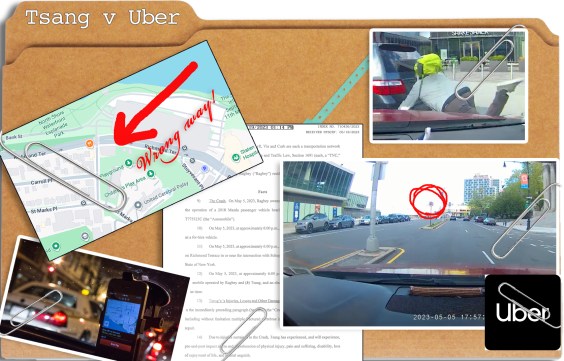
It is no secret that taxis and ride-hail companies (Uber, Lyft) are in need of a more even playing field. California's taxi industry is regulated tightly by local municipalities, generally cities. Ride-hail, also called TNCs (Transportation Network Companies), are regulated relatively laxly by the state Public Utilities Commission (PUC). But proposed state legislation that would theoretically put the taxi industry on a more even footing is ruffling some feathers, especially in southern California, where the city of Los Angeles this week voted to formally oppose the legislation.
Assemblymember Evan Low (D-Silicon Valley) is the author of A.B. 650, called the Taxicab Transportation Services Act. The bill is working its way through the legislative process, currently awaiting approval of the Senate Rules Committee, and expected to be voted on by the Senate soon. If approved by the Senate, the bill will then have to go to the Assembly where it would need to be approved before Wednesday.
A.B. 650 would remove local control of taxis, shifting responsibility to the PUC.
Theoretically the bill would apply to the entire taxi industry statewide, but there is a carve out so it does not apply to San Francisco. San Francisco's taxis operate on a medallion system, which serves as a sort of retirement benefit, so upending that system could constitute a "taking." City of L.A. taxis operate under a franchise system, which does not feature a similar retirement benefit for drivers.
One big issue in Los Angeles' opposition to A.B. 650 is the city's bottom line. The city currently charges a fee of $30 per month per taxicab, totaling $360 per year. Under A.B. 650, cities' or counties' taxi permit fees may not exceed $50 per year per taxicab. L.A. uses the current funding stream to enforce restrictions against taxi's other competition: "bandit" or unlicensed cabs. Bandit cabs are not subject to consumer protections including approved fare structures and disabled access.
L.A. City Department of Transportation (LADOT) General Manager Seleta Reynolds is critical of A.B. 650 because the city would lose the ability of ensuring taxis serve Los Angeles's transportation, labor, equity, and environmental goals. Reynolds stated,
Local control matters because of what's coming next--our ability to regulate an increasingly autonomous fleet of rides for hire. For the present, we lose the ability to require lifeline services for people with disabilities, equitable service to every neighborhood in the city, and a green taxi fleet. For the future, we lose the ability to encourage ridesharing through pricing and to prohibit things like empty taxis circling the street.
Los Angeles Taxicab Commission President Eric Spiegelman submitted an opposition letter [PDF] that outlines in greater detail points similar to Reynolds'.
The debate before the city council was spirited. Councilmembers opposing the bill, led by Mike Bonin, spoke of dire consequences including discrimination, unfair pricing, and "consumers getting screwed." Councilmember Bonin described handing taxi regulation over to the PUC as a "race to the bottom" whereas state and local regulations should instead safeguard taxi riders in a race to the top.
Other city councilmembers took a more skeptical stand, questioning LADOT's "poor job" in attempting to unencumber L.A. taxis so they better compete with TNCs.
Reynolds responded to questions by outlining LADOT's recent progress in supporting its beleaguered taxi industry. LADOT had proposed broad deregulation, though this failed due to taxi industry opposition. Recent L.A. taxi reform initiatives include:
- LADOT removed restrictions on where cabs can pick up street hails (taxi trips without an app), the type of ride that taxis are permitted to do but TNCs are not.
- LADOT is also in the process of setting up reciprocal licensing with West Hollywood and Santa Monica. Currently taxis can only pick up in cities where they are licensed, and licenses are city by city. Some cross-city trips create what is called "deadheading" where, after a drop-off, a taxi is in a city it is not licensed to operate in, and must drive back without a passenger. Future reciprocal licensing is expected to include Glendale, Burbank, and Beverly Hills.
- LADOT is working to approve dynamic pricing when taxis are hailed via an app. Currently, taxi fares are rigidly prescribed, to protect consumers from gouging. The city would still set a ceiling, but would allow taxi fares to be discounted or increased, similar to TNC surge pricing.
Ultimately the L.A. City Council voted 12-0 in favor of opposing A.B. 650 as currently written, and requested that L.A. County receive a carve-out exemption, similar to San Francisco.
L.A. Mayor Eric Garcetti also submitted a letter [PDF] in opposition to the bill.
For L.A. transportation leaders, A.B. 650 appears to be more harmful than helpful. Bonin, Reynolds, and Spiegelman all expressed support for state and local legislation to help establish a more level playing field for taxi operations. This is likely to be complex and could take form at a county or even multi-county level. Ideally it would also raise customer service standards by regulating TNCs, too.





